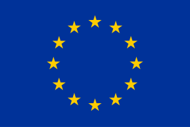What role does urban and peri-urban agriculture play in city food systems in the context of COVID-19 and climate change? 21 January, online

FoodSHIFT2030 presented a webinar on the role of urban and peri-urban agriculture in city food systems and how they face crisis such as climate change and Covid19. Three initiatives presented their contributions.
Starting off, FoodSHIFT2030’s Avignon Lab stressed their objective to reduce food waste in uniting public canteens, a butcher apprenticeship school, and local meat producers through the AGRILOCAL online platform. In a nutshell, local meat producers sell their production to the butcher school to train the butcher students, and afterwards, the meat is given to 37 public canteens to ensure the preparation of their 650,000 annual meals. Their goal is to supply the public canteens with 20% local products and 38% organic ones. Learn more about their initiative by reading our previous article.
In Barcelona, the 2021 world capital of sustainable food, FoodSHIFT2030’s Barcelona Lab puts urban agriculture and technical innovation forward as solutions. The Barcelona Lab created over 120 urban gardens and the FabCare Challenge App to help citizens find information about sustainable food and nutrition. They also manage ROMI-Robotics for Micro-Farms, which sets up a series of technological tools to help micro-farms (<0.1-0.5 ha) be more efficient and competitive to face large industrial farms. They dedicate a lot of research to find solutions to minimize energy and water consumption, and make the system more economically viable.
Finally, Edible Garden City’s Director explained that Singapore faces a lack of space to produce food, as only 1% of land is allocated to farming (for 5.6M inhabitants) against 25% in the 1960-1970’s (for 1.6M inhabitants). 90% of the food consumed is imported from abroad, which puts the country in a situation of food insecurity. To face this, as well as the land degradation and biodiversity loss, the city launched an urban redevelopment plan including over 220 pesticide-free urban rooftop gardens managed by local communities.
Learn more about all these initiatives by watching the webinar.
FoodSHIFT2030 is a Horizon 2020 project promoting food systems innovations in nine cities across Europe. More information about the nine FoodSHIFT Labs is available on the FoodSHIFT2030 website. Follow the project on social media using @FoodSHIFT2030 on Twitter, Instagram, YouTube and LinkedIn.
IFOAM Organics Europe contributes to the conceptual framework for further development of governance strategies and food policy strategies. We will also disseminate project outputs within the organic network and at our main events.

FoodShift2030 has received funding from the European Union’s Horizon 2020 research and innovation programme under grant agreement number 862716. This communication only reflects the author’s view. The Research Executive Agency is not responsible for any use that may be made of the information provided.

